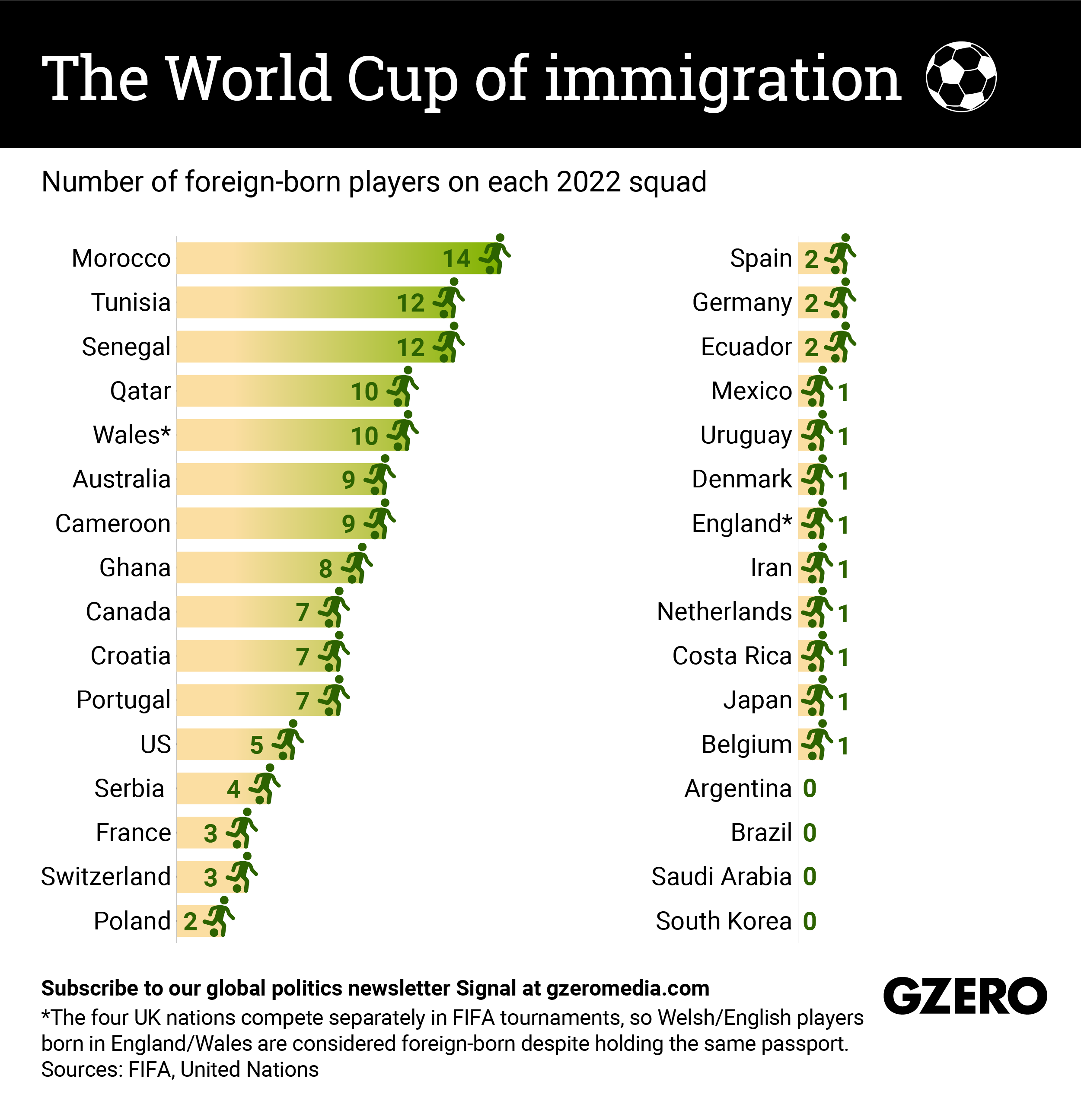December 02, 2022
If you're a soccer player, your dream is to compete in the World Cup — with whatever country will call you up, whether you were born there or not. About 10% of players in the 2022 edition of the tournament in Qatar are foreign-born.
But this is nothing new. Almost 14% of players in Italy '90 were foreign-born and in the colonial era legends like striker Eusébio from Mozambique defended the colors of Portugal. What's more, when FIFA's eligibility standards were more lax, players were allowed to switch sides. José Altafini won the trophy with his native Brazil in 1958 and four years later didn’t repeat victory because he’d signed up for Italy, his adopted country. Wars matter, too: Robert Prosinecki played for Yugoslavia in 1990 and later for independent Croatia in 1998.
Also, the distribution of foreign-born players in Qatar 2022 is unequal: While half of Morocco's squad was not born in Morocco, four teams — Argentina, Brazil, Saudi Arabia, and South Korea — have no foreign-born players at all. Fun fact: The Williams brothers, both born in Spain, are playing for different countries — the older Iñaki is realizing his grandfather's dream by playing for Ghana, where the family's roots are, while Nico is with La Roja.
We take a look at the number of foreign-born players in World Cup national squads.
More For You
People in support of former South Korean President Yoon Suk Yeol rally near Seoul Central District Court in Seoul on Feb. 19, 2026. The court sentenced him to life imprisonment the same day for leading an insurrection with his short-lived declaration of martial law in December 2024.
Kyodo
65: The age of former South Korean President Yoon Suk Yeol, who was sentenced to life in prison on Thursday after being found guilty of plotting an insurrection when he declared martial law in 2024.
Most Popular
In an era when geopolitics can feel overwhelming and remote, sometimes the best messengers are made of felt and foam.
Hungarian Prime Minister Viktor Orban holds an international press conference in Budapest, Hungary, January 5, 2026.
REUTERS/Bernadett Szabo/File Photo
The Hungarian election is off to the races, and nationalist Prime Minister Viktor Orbán is facing his most serious challenger in 16 years.
How people in G7 and BRICS countries think their policies will effect future generations.
Eileen Zhang
Does skepticism rule the day in politics? Public opinion data collected as part of the Munich Security Conference’s annual report found that large shares of respondents in G7 and several BRICS countries believed their governments’ policies would leave future generations worse off.
© 2025 GZERO Media. All Rights Reserved | A Eurasia Group media company.
